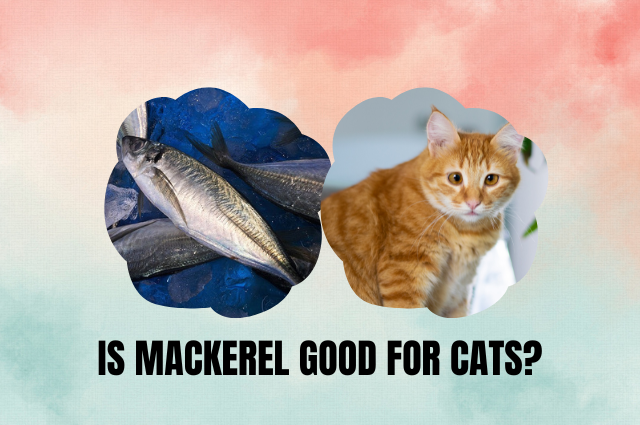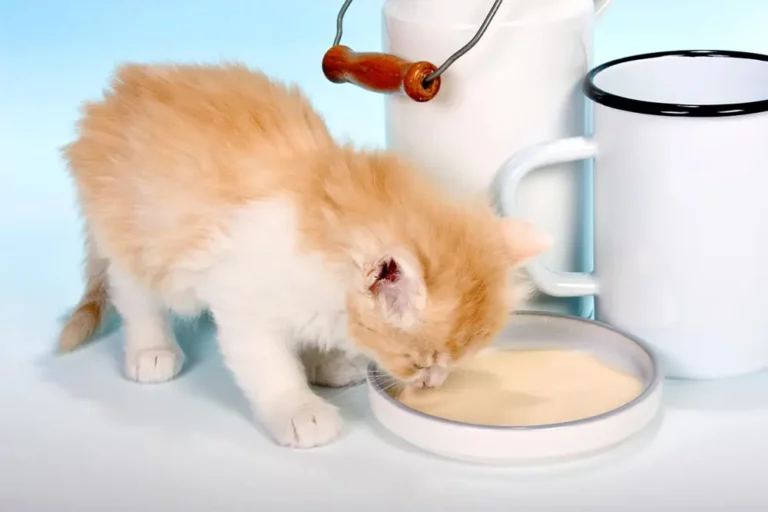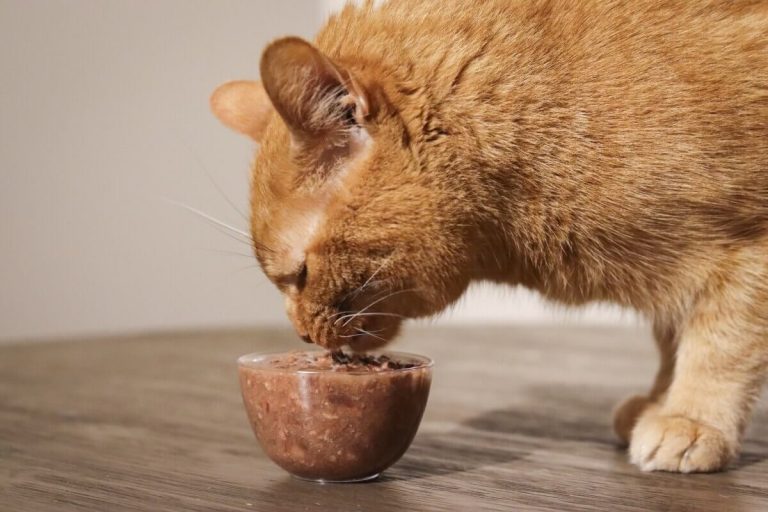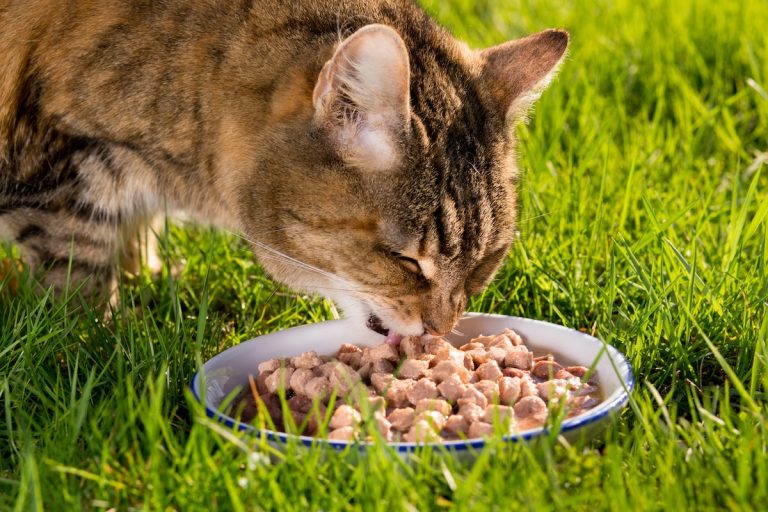Is Mackerel Good for Cats?
Oceanic fish contains a series of nutrients that help cats’ bodies function properly. However, mackerel and other species might not always be a good thing to feed your
Today’s article looks at all of these details and gives you all the answers. But if you need a quick one, here it is: Yes, cats are allowed to eat mackerel. It is one of the healthiest fish for this species, but it should be cooked properly.Â
Can Cats Eat Mackerel?
You can give your feline friend mackerel and other fish as they supply them with the necessary proteins, fats, and other nutrients that these pets need for well-being and health. Thanks to the omega-3 fatty acids contained in this fish, your
Is Mackerel Good for Cats? Potential Benefits
Omega-3 Fatty Acids
You’ll be surprised and amazed if you do detailed research about these fatty acids. Both for humans and animals, omega-3 fatty acids provide multiple benefits, ranging from superior skin and coat health to their anti-inflammatory properties, which are particularly helpful for cats with arthritis.Â
Besides reducing inflammation, fish oil supports heart health and slows down the progression of kidney disease. And if you want your feline companion to be quick, bright, and have excellent reflexes throughout their life, you should consider either giving them fish oil supplements or adding mackerel to their diet.Â
Protein
Protein is the building block of muscles, which every person can tell you, whether they are bodybuilders or not. But for cats, proteins are even more important as they are obligate carnivores. In other words, they need high-quality protein as they use it to synthesize pretty much all of the other nutrients they need.Â
Mackerel is a good source of protein. 100 grams of this fish contain 19 grams of protein, and if commercial pet food manufacturers used as much protein as this species has, all of our cats would be healthy.Â
Vitamin B12
B vitamins are important for a wide range of tissues and processes, but B12 is particularly so for maintaining the quality of blood and nerve cells. It prevents anemia, a disease associated with tiredness and lack of energy. Because it improves memory, it is also assumed that this nutrient is capable of preventing cognitive dysfunction in older cats.Â
Selenium
This is an essential mineral that has been found to be involved in multiple processes that happen in a
Mackerel for Cats – Potential RisksÂ
Unfortunately, while there are benefits involved when it comes to feeding mackerel to your
Heavy Metal Contamination
Although some pet food manufacturers might try to convince you otherwise, you should know that pretty much all fish in the world, particularly oceanic and sea species, have the likelihood of containing heavy metals, mainly mercury.Â
Marlin, shark, swordfish, king mackerel, and tilefish are among the fish types that you can expect to contain heavy metals. A 2020 scientific paper detailing a study performed in Bosnia and Herzegovina found that mackerel actually contained a higher level than the one currently accepted for mercury.Â
In other words, whenever you feed your
- Lack of coordinationÂ
- Disturbances in peripheral vision
- Tingling or lack of sensation in the feet and mouth
Over time, it causes cardiovascular complications. Since this occurs in humans, we can only assume that it is the same in cats — children exposed to high levels of mercury experience a delay in brain development and body growth. Therefore, it is particularly dangerous for kittens.Â
And no, before you can make any assumption, unfortunately, you cannot know if the mackerel you’re putting on your
Parasites and Bacterial Contamination
Mackerels do have parasites, much like codfish and other species. However, most of these roundworms cannot pass the trans-species barrier, so they will usually be consumed by the
As for bacterial contamination, like any other fish, mackerel is likely to go bad, especially in high temperatures. In the summer, if it is not caught and stored properly, you might even have the bad luck of buying it spoiled, either from a fishmonger or frozen. Technically, the freezing process is supposed to kill any bacteria, as very few species survive such harsh temperatures, but who knows?Â
You might also like: Is arugula bad for cats?
Sodium Poisoning
If you get the fish and cook it at home, you have complete control over what you’re putting on it, or however you prepare it. This means you should, of course, refrain from seasoning any parts of the fish you know you will feed your
Like dogs, cats have a very low resistance to high sodium levels, so they can get sodium poisoning quickly. That is not something you can control if you get mackerel in brine, for example, as the salt levels are usually through the roof, even for a human (some cans contain as much as 45% of the daily intake of salt!). No-salt varieties are safe by comparison.Â
In cats, sodium poisoning causes the following symptoms:
- Lethargy and a lack of coordination
- Vomiting and diarrhea
- Excessive thirst
- Excessive urination
The nervous system is affected in severe cases, and the
How Much Mackerel Should You Give Your Cat ?
There aren’t any specific guidelines for this fish as you would expect from a commercial
Most vets recommend (I included) that you look at it as an occasional treat rather than a main source of nutrients, so perhaps two to three tablespoons of cooked, unseasoned mackerel per month would be a good choice.Â
Read more: Best wet cat food for older cats
Frequently Asked Questions
Is canned mackerel good for cats?
It depends on which type you buy. If there is a no-salt variety conserved in, say, olive oil, then the answer to the question is yes. If you’re getting the one in brine, the answer is a hard no — you should never give your
Is mackerel good for cats with food allergies?
Fish is viewed as a less allergy-inducing protein source than beef, pork, or chicken, the three ingredients used repeatedly in most commercial
However, due to the heavy metal exposure, possible bacterial contamination, and the fact that you need to home-cook it to make it safe, I’d say that it’s safer to opt for fish-based kibble and wet food, with no chemical dyes, preservatives, binders, or anything else.Â
Is mackerel good for cats with kidney disease?
No, for two reasons – the possible heavy metal and the possible sodium exposure. As you probably know, people and pets with kidney disease aren’t supposed to go crazy with the salt in their diet, so canned mackerel is a big no-no for them.Â
Can cats eat mackerel in brine?
No. As previously mentioned, brine is basically a solution of water and salt, which might indeed be effective as a preservative and might be consumed by healthy people, but it is incredibly harmful to both cats and dogs. They are not genetically engineered to process this much salt, and neither are we, for that matter, but a young person’s body is amazing in terms of what it can take.Â
What canned fish can cats eat?
Any fish not conserved in brine and marketed as no-salt is pretty much safe for cats. Canned sardines, tuna, salmon, whitefish, tilapia, anchovies, and more are OK, but consider the risks we have highlighted above and use them as snacks, not daily meals.Â
You might also like: Royal Canin Cat Food Review
Final thoughts
Mackerel for cats has both benefits and disadvantages, as you might have noticed from this article. While you are allowed to give your
Multiple freshwater species are technically not exposed to heavy metals as much, such as trout, pike, crappie, walleye, catfish, and bass. These are supposed to be safer to give to cats, especially if they’re sourced from lakes in which waste has never been dumped.Â
Depending on your location, freshwater fish might differ — in Europe, carp and trout are very common, whereas in North America, these two aren’t as common.Â






